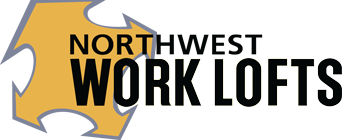Educational and Research Institutions of Seattle: Impact of the University of Washington on Local Economy and Innovation
Seattle stands as a hub for educational excellence and research innovation. The city is home to renowned institutions such as the University of Washington, a powerhouse in both academia and technological development. These institutions are not just places of learning; they are vital engines driving the local economy and fostering groundbreaking innovation.
The University of Washington significantly impacts Seattle’s economy and innovation landscape. Its research facilities attract leading scholars and scientists who contribute to advancements in various fields, from medicine to computer science. This influx of talent and investment fuels local businesses and creates high-paying jobs.
Additionally, the presence of these educational institutions fosters a culture of continual learning and adaptation. Startups and established companies alike benefit from collaborations with researchers and access to cutting-edge technology. This symbiotic relationship ensures that Seattle remains at the forefront of technological and economic progress.
University of Washington: Academic Hub
The University of Washington stands as a cornerstone of academic excellence in Seattle. Its contributions span diverse academic programs, research advancements, positive economic effects, and global collaborations.
Academic Programs and Research Centers
The University of Washington offers a broad spectrum of academic programs. With more than 140 departments and several specialized schools, it caters to a wide array of disciplines.
Prominent schools include the School of Medicine, Foster School of Business, and College of Engineering.
Research centers such as the Applied Physics Laboratory and Institute for Health Metrics and Evaluation (IHME) drive innovation. These centers facilitate groundbreaking research in fields like public health, environmental sciences, and technology.
Interdisciplinary programs encourage collaboration among different departments, fostering a more dynamic research environment.
Contributions to Science and Technology
The University of Washington has a history of significant contributions to science and technology. Notable achievements include advances in computer science, medicine, and oceanography.
Faculty and alumni have been involved in pivotal tech innovations. For example, the development of the first practical touchscreen was a UW project.
Biomedical research is another strong point, with groundbreaking work in genomics and cancer treatment. The university’s researchers frequently publish in top-tier scientific journals, further cementing its reputation.
Economic Impact on Seattle
The University of Washington is a key economic driver in Seattle. It employs thousands of faculty and staff, providing stable jobs and contributing to local income.
Student spending in the community supports local businesses. The university’s role as a research institution attracts both federal and private research funding, injecting capital into the local economy.
Spin-off companies from UW research contribute significantly to the tech and biotech sectors, creating jobs and innovation hubs within the city. This makes Seattle a competitive location for tech companies and startups.
Global Academic Collaborations
International collaborations strengthen the University of Washington’s global presence. Partnering with institutions worldwide, it engages in joint research projects and academic exchanges.
Study abroad programs offer students the opportunity to gain global perspectives. These programs span numerous countries and disciplines, enriching the educational experience.
Research partnerships include projects with universities in China, Germany, and Australia. Such collaborations not only enhance the quality of research but also promote cultural and intellectual exchange, making the University of Washington a globally respected institution.
Influence on Local Innovation and Economy
The University of Washington and other educational institutions in Seattle play a significant role in driving local innovation and boosting the economy. They contribute by fostering a thriving startup culture, forming vital industry partnerships, and enhancing workforce development.
Startup Culture and Entrepreneurship
Seattle’s educational institutions foster a vibrant startup ecosystem. The University of Washington’s CoMotion innovation hub supports aspiring entrepreneurs by offering incubation programs, funding, and mentorship. Spin-offs from university research lead to the creation of numerous startups, which directly impacts job creation and economic growth.
Student-led initiatives and hackathons further enhance the entrepreneurial spirit. Academic programs in entrepreneurship provide the necessary skills for students to launch and sustain their ventures. This culture solidifies Seattle as a breeding ground for innovation and new businesses.
Partnerships with Industry
Collaboration between Seattle’s academic institutions and local industries drives technological advancements. The University of Washington has established strategic partnerships with tech giants like Microsoft, Amazon, and Boeing. These alliances facilitate research grants, joint ventures, and knowledge sharing.
Such partnerships enable the development of cutting-edge technologies and solutions. Faculty and students gain industry insights through internships and co-op programs, which contribute to real-world applications. These collaborations are pivotal in maintaining Seattle’s status as a tech and innovation hub.
Workforce Development
Educational institutions play a key role in workforce development. The University of Washington provides specialized training programs, degrees, and certificates aligned with industry needs. Courses in data science, artificial intelligence, and bioengineering equip students with in-demand skills.
Career services and job placement programs ensure graduates find employment in local industries. Continuous learning and professional development opportunities offered by these institutions help existing workforce members upgrade their skills. This strengthens the local labor market and attracts businesses seeking a highly skilled workforce.
